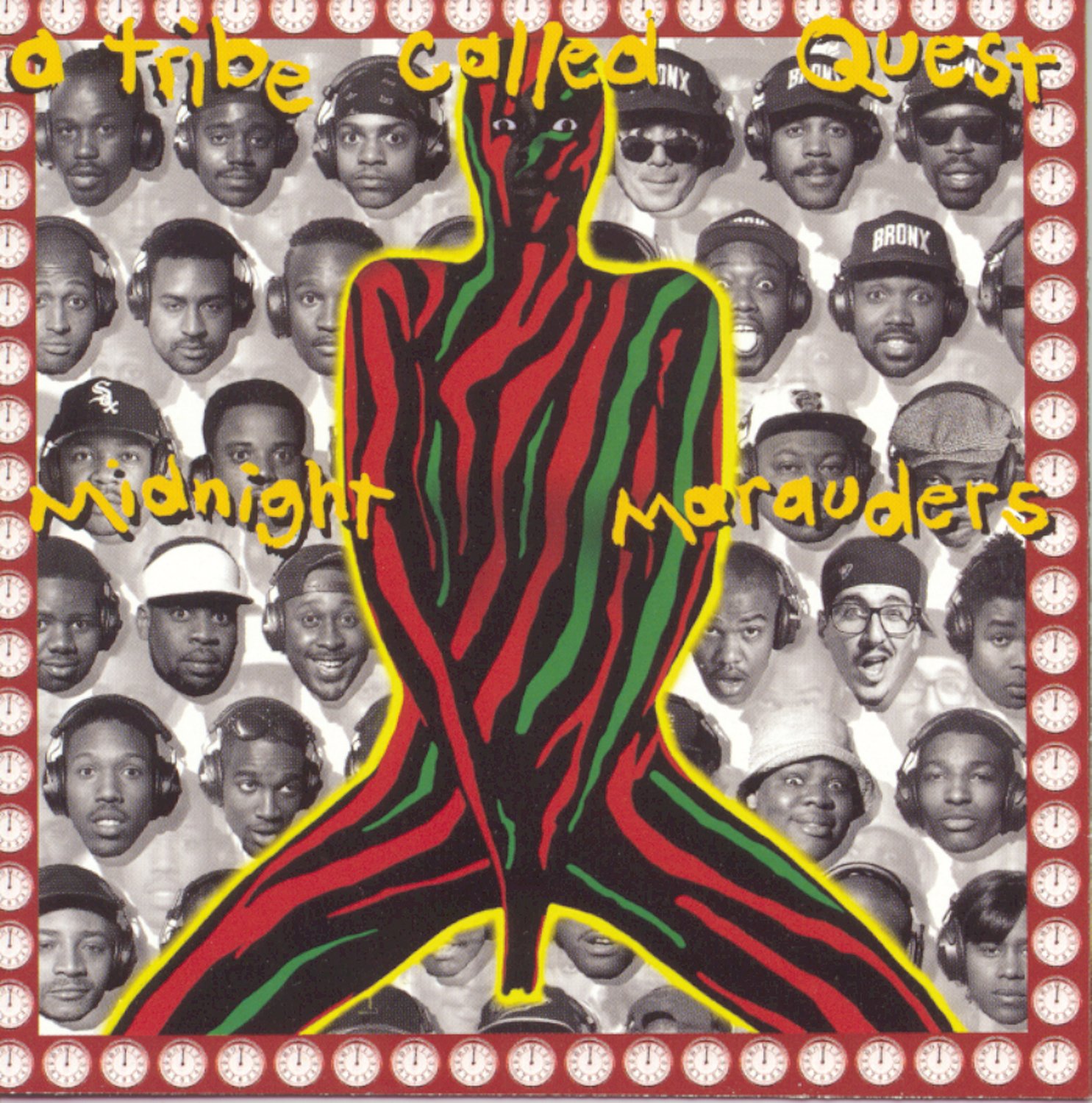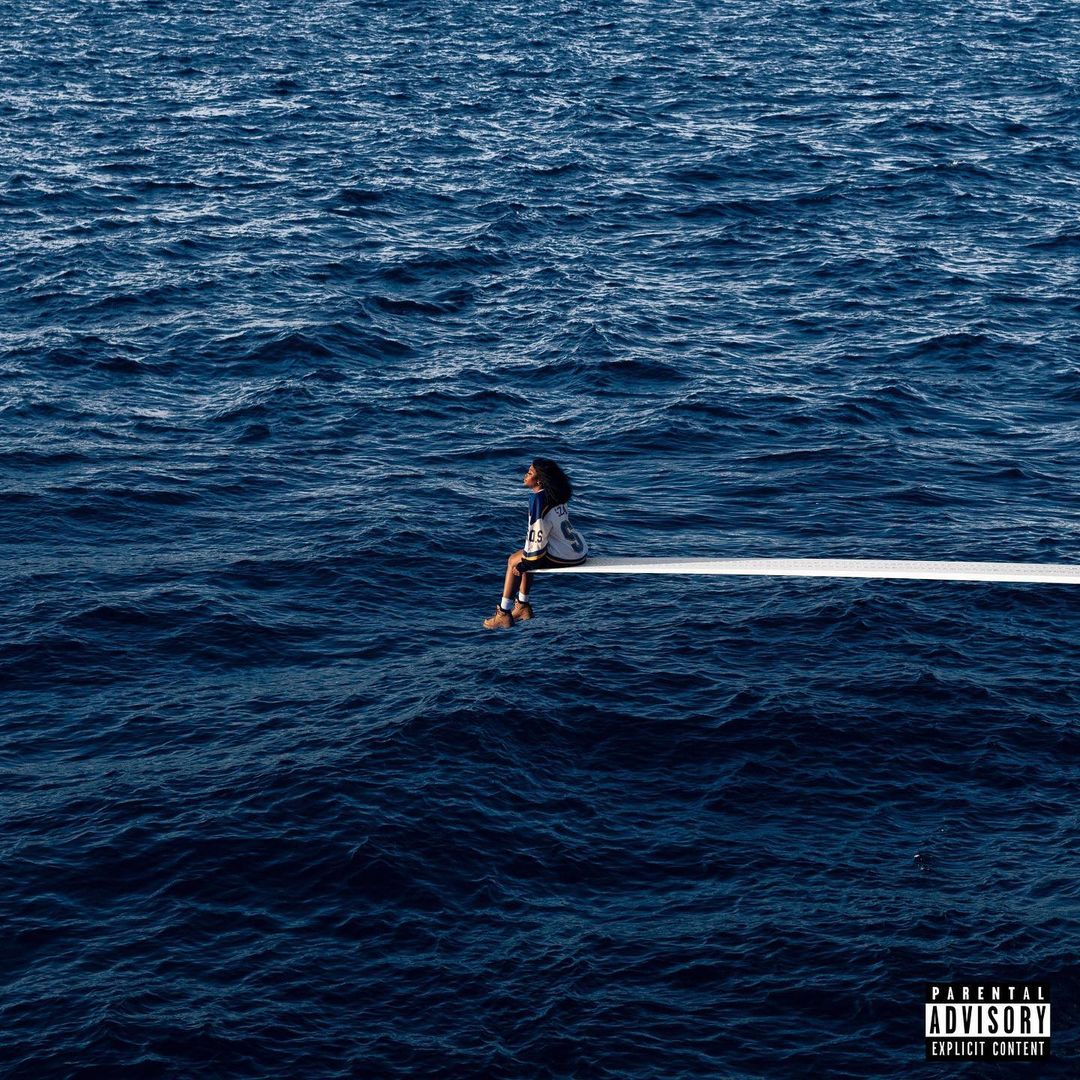By: Tommy “T-Rod” Rodriguez
This is one of many entries in a series where I will be doing weekly blurbs on New York’s music scene. From old to new records, we’ll be going over some of the most classic records from The Big Apple and its surrounding region!
Let me spin a little musical back story for you: about a year and a half ago I decided to do a little favor for friend. The friend in question was quarantining due to having tested positive for COVID, and asked me around 9:30 PM to be a homie and pick up his dinner from Buffalo Wild Wings. “Sure,” I say as I remove my headphones from my head and get off my couch, “I got nothing going on.” I head downstairs to my car, and zoom into the night. The air was cool and crisp, rare for Florida weather in the spring; I had low gas so I decided to lower the windows and turn ofF the A/C. My queue was running nothing but my favorite jazz rap: Mac, MF DOOM, Busta Rhymes, Cordae and Blu were blasting as I cruised through the empty streets of Gainesville to the fabled B-Dubs. As I dropped off my friend’s goods and decided to head home, a certain song came on that ended up delaying my drive by a few extra songs: “Electric Relaxation.”
There’s nothing quite like A Tribe Called Quest’s “Electric Relaxation.” A flirtatious ode to the women rappers Q-Tip and the late Phife Dawg tried to woo, the song is perfect for the late night. A soft drum groove kept my head bobbing, a slick and frantic bass line kept me tapping my fingers on the wheel, and weird electric drones hung in the background like the lights I drove by. The song is a masterpiece, perfect for late night cruising and for just kicking back. That whole drive made me realize something: the album that “Electric Relaxation” comes from, Midnight Marauders, really is a perfect example of hip-hop’s power. Its power to move minds, make memories, and manifest movement. Let’s explore why this album hasn’t aged a day and what makes its genius tick.
To begin, it’s important to note that Tribe (comprised of Q-Tip, the late Phife Dawg, Ali Shaheed Muhammed and Jarobi White), blatantly intended for this album to be bumped at night. In short interludes between songs, Jive Records secretary Laurel Dann acts as a guide, that Tribe themselves listened to their tunes after dark. Her presence lends the album a unique identity, segueing beautifully track to track as she gives facts about Tribe as a group, important social facts, and the BPM of the record.
That BPM is slow, but never plodding; it’s just right. The album is aesthetically perfect for the evening, relying on tight drum grooves, funky upright bass to add more body to the beat, and quirky flourishes to lend trademark Tribe eccentricity. Take “Oh My God,” with its grainy drums, droning horns, and fingerpicked bass on the verses. The song is equal parts slick and absurd, especially when Busta Rhymes’ brazen shouts come in on the chorus. The vibes from other tracks are similarly smooth and off-kilter. “Sucka N***a” has a legendary bass line laced like crack over slowed vocal samples, blurting horns and sparse keys. The track’s beat is equal parts confident and confrontational, especially when Q-Tip makes fun of fake MCs and teaches the listener on how to not be a “sucka.” Tip himself is a legend for a reason, being one of the few MCs that can teach a lesson without coming off as preachy, and often Phife Dawg and other members balance this out with more humorous, confident moments to balance out the wisdom.
Speaking of wisdom, Midnight Marauders is one of the few albums that genuinely lets the listener learn more about the world. As soon as “Steve Biko” starts, Phife Dawg talks about heritage, self-love, self-humor and warns against bad relationships. Phife and Tip are great at mixing life-lessons with clever rhymes and one-liners, making their flows hit even harder. “Midnight” is all about the album’s setting, with Tip describing the nighttime of New York: corrupt cops, the deafening silence, the familiars you run into. It’s a great example of how Tribe can bring a sinister vibe with a hopeful twist. “The night is on my mind, the sun’ll still shine” is a great mantra, almost like Tip is convincing you to hang tough through the bad times. Despite most rap albums around this time evolving into gangsta rap (exploring the rough times), rap still had its fun side, which Phife and Tip explore here. “We Can Get Down” is vintage jazz rap, with reverbed hi hats and kicks being complemented by subtle DJ scratching and playful keys. Phife Dawg and Tip match even the hardest MCs of the time with both having standout moments, whether it’s Phife exclaiming that there’s still positive MCs in the game or Tip rapping each word in a bar to match the backing instrument. While a lot of West Coast artists were aiming for cutthroat sounds and stories, Tribe took the alternative route and just chose to kick it and be the cool people they were.
And this album oozes that word, “cool.” The swagger and confidence in this album are as infectious as its hooks. “Lyrics to Go” gives off the vibe of an open mic night cypher, with a nasty guitar loop backing up the even nastier wordplay that Tip and Phife bring to the table. I can feel the duo’s cocky attitude breathe through the music, but it’s all done with a level of bluntness and simplicity that is far more effective than any surface level flex. “Award Tour” is a much more surface level flex anthem, a victory lap for the group’s previous masterclass, The Low End Theory…but it works as it shows how they made this album grow from the base Low End set. The beat is more in your face, the flows more technically impressive, the hook catchy; Trugoy’s playful rhymes slide across the mix as easily as butter. The debate between which album is better, Low End or Marauders, is one of rap’s great debates. While I think there is no right answer, I always go for the latter due to its advancement on the former’s foundation. Songs like “Keep It Rolling” hit different with their more unique cadences and direct prose. “The Chase Part II” has a ton of energy on the beat, a song that can easily play in a midnight bar and is aided by the strengthened chemistry between Tip and Phife that came with their greater experience. There’s a reason why my aforementioned drive was delayed; music like this is always a great time.
Few groups embody what I love most about hip-hop quite like A Tribe Called Quest. Their music, more so than a lot of early 90s rap, has aged incredibly well. This may be because the jazz and rap fundamentals of this album are great. Maybe because the writing is clever and knowledgable. It may also be because countless artists are still heavily inspired by Tribe: Kanye West, Joey Badass, J. Cole and Logic are very much carrying the torch for the boom bap soul that Midnight Marauders did so well. To me, I think their music aged the best because of how universal and well-developed its themes are: love, show biz, freedom of the mind, peace and equality. Even now, I’ve snuck in “Electric Relaxation” and other songs into playlists I have and the listening audience has always come away loving it. Midnight Marauders is classic hip-hop any time, any day…but if you plan to give it a listen, the wisdom may hit a little harder when the sun goes down.
But that’s just my thoughts on the album. What do you think about Midnight Marauders; is it a classic to you? What are some of you favorite Tribe songs? Is it better than Low End Theory? Sound off on the comments below and share!
SOFLOSOUND.COM is your one stop shop for a music fan’s music reviews, profiles, and essays. By the youth, for the youth, and allied with all oldheads, everywhere. Leave a comment below on what you want to see next!


